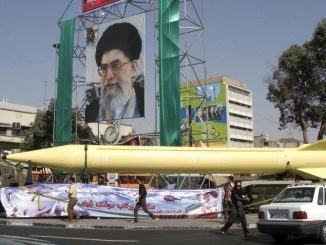
By: Yasin Aktay*
In my previous articles I discussed the possible effects Donald Trump’s U.S. presidency had on U.S.-EU relations. Today, I am going to try and discuss another dimension, one that has effects on Turkey’s foreign politics and world peace. Nearly all U.S. presidents, after World War II, either promised to find a solution for the Palestine-Israel Issue, or actually tried to resolve it.
The Oslo Negotiations developed after U.S. took initiative. George W. Bush had attempted to find a solution for the Palestine-Israel conflict during his presidency, but was unsuccessful. This was followed by Barack Obama emphasizing, during his presidency campaign, that he wanted to find a solution for this conflict, which he did attempt several times. It can be said that, in the first period of his presidency, Obama was not able to propose an effective agenda for the solution of this conflict. Operation Cast Lead, which Israel launched just a short period before Obama came into office, was effective in the issue developing in this way. Although Obama approached Israel’s politics in a critical way, he abstained from commenting on the operation, because he was not yet officially in office. Moreover, it may be due to Obama thinking Israel was trying to confront it with a fait accompli before he even officially started his presidential period and foresaw that there were bad intentions, he did not make an official visit to Israel during this first period.
They tried to conduct the Palestine-Israel peace period from Cairo. Yet the only thing that stuck in our minds after these meetings were the photo shopped pictures of Hosni Mobarak next to Obama that were released to the media.
Obama entered the second presidency period in a more assertive manner. His strategy was to ensure that peace was established between Palestine and Israel, that this issue was no longer on the agenda of U.S. foreign politics and that Israel was not as effective on U.S. foreign policies. Therefore, he visited both Israel and Palestine. He visited the graves of Yitzak Rabin in Israel and Yasser Arafat in Palestine and called for the return to the Oslo spirit. Although forcibly he had the parties meet at the same table.
Everything was not perfect, but everything did not have to go well according to Obama. The important thing was for the negotiations to continue and then finalize. For this purpose, he put diplomatic pressure on the parties, and showed great effort so that the phase would not fail. But, upon al-Fatah and Hamas agreeing on founding a National Consensus Government, Israel found the excuse it was looking for. Israel left the negotiation table arguing that al-Fatah was trying to make it come face to face with a terrorist organization. Thus, Obama’s goal to end the Palestine-Israel conflict was put away for good.
The negotiation table falling apart seriously affected the U.S.’s Middle East politics, because Obama had established his Middle East strategy mainly on the Palestine-Israel peace. If this was accomplished, the U.S. would gain prestige in the Middle East and would then be able to solve many things without resorting to economic or military measures. This strategy failing, which was based more on hope rather than politics, had very dear costs: The U.S. lost popularity in the region, and the places the U.S. vacated were filled by terrorist organizations like Daesh, the Democratic Union Party (PYD) and its armed wing, the People’s Protection Units (YPG) and Hezbollah.
During his election campaign, Donald Trump made several statements on the Palestine-Israel problem. These were generally statements that were positive for the Israeli side. For example, he promised Israel that he would have the U.S. Embassy moved from Tel Aviv to Jerusalem. On the other hand, stating that he would rip up the nuclear agreement made with Iran made Israel happy. Israeli Education Minister Naftali Bennet, was obviously affected by Trump, as he started to argue that there was no longer a possibility that a Palestine State would be established. In a period in which the effects of Trump being elected is argued in the Israeli public opinion, the Haaretz newspaper published a document showing how the Israeli government was actually cautious against Trump being elected. According to the document, Trump would go in Obama’s footsteps in the Middle East and thus decrease military interventions. Moreover, according to the document, Trump’s statements during the election campaign should not be taken seriously, as someone who looks at issues with a profit-loss attitude cannot be really consistent.
Despite everything, Trump’s election has created an expectation in Israel especially among the far right/racist groups. If the government goes with this far right/racist effect, it can be expected that any hope for Palestine-Israel peace will be lost. The government announcing that it once again has the Ramat Schlomo settlement (which was temporarily stopped) in East Jerusalem on its agenda, and the 76-decare area and 500-house project being activated are both strong signals indicating this.
The fact of the matter for Israel is, if Israel wants to exist and ensure its security continues, it has to understand that it does not have any other option, but to live with Palestinians. Thus, this requires that, before anything else, Israel has to seriously think of withdrawing from the Palestinian territory that it occupied in 1967.
Or the storm will continue to brew and the Israeli society will become a more paranoid society by the day. And even though it is deluded thinking it will have safety from the fire burning around it, the fire lit by the sparks of this fire will fiercely burn it, too.
*Yasin Aktay is the vice chair of the ruling Justice and Development (AK Party) in Turkey.
(Published in Yeni Şafak Turkısh newspaper on Monday, Dec. 5, 2016)



